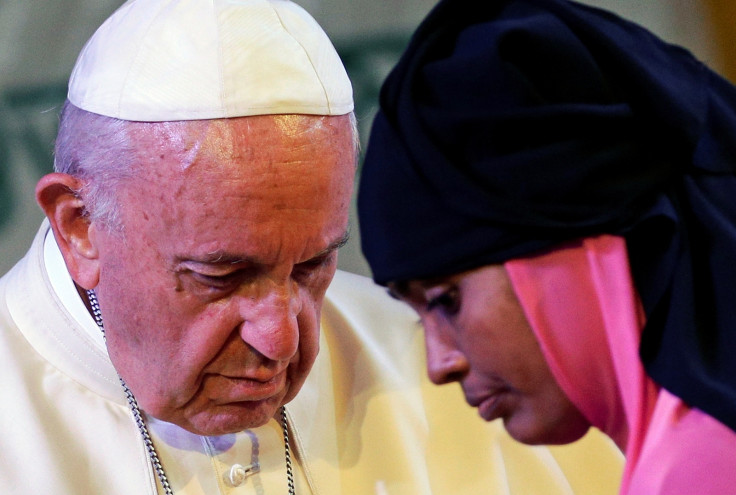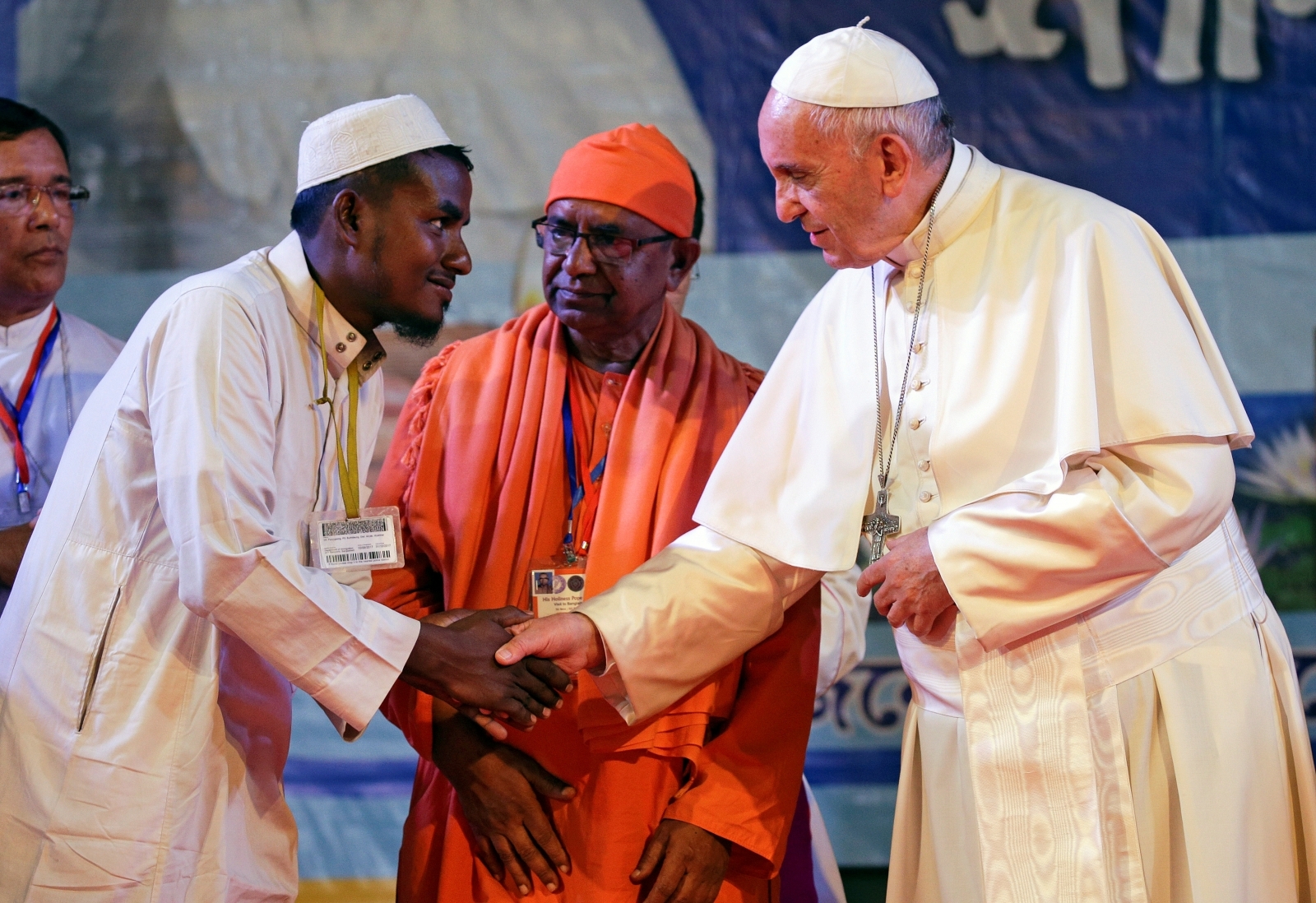Pope Francis tells refugees in Bangladesh: The presence of God is called 'Rohingya'
Pope Francis met a group of Rohingya refugees in Bangladesh and pronounced the word he had so assiduously avoided only days earlier in Myanmar.
Pope Francis greeted and blessed a group of Rohingya Muslim refugees in Bangladesh, grasping their hands and listening to their stories in a show of public solidarity amid Asia's worst refugee crisis in decades.

He apologised for the "indifference of the world" to their plight and demanded their rights be recognised. And then Francis pronounced the name of their ethnic group to a gathering of Muslim, Buddhist, Hindu and Christian leaders. "The presence of God today is also called 'Rohingya'," he said, using the word he had so assiduously avoided only days earlier in Myanmar.
One by one, each one of the refugees approached the Pope at the end of the event in the tented garden of the Dhaka archbishop's residence. Francis blessed one little girl, placing his hand on her head, and grasped the shoulder of a young man. The women who approached him pushed aside their headscarves so they could speak, offering their hands out for him to hold.
"Maybe we can't do much for you, but your tragedy has a place in our hearts," Francis told them. His voice trembling with emotion, he continued: "In the name of all those who persecute you, who have persecuted you, and those who have hurt you, above all in the indifference of the world, I ask you for forgiveness. Forgiveness."






The 16 Rohingya — 12 men, two women and two young girls — had travelled to Dhaka from Cox's Bazar, the district bordering Myanmar where refugee camps are overflowing with more than 620,000 Rohingya who have fled what the UN says is a campaign of ethnic cleansing by Myanmar's military.
The campaign has included the burning of Rohingya villages and fleeing Rohingya have described rape and shootings by Myanmar soldiers and Buddhist mobs that left them no option but to make the dangerous and sometimes deadly journey through jungles and by sea to Bangladesh.
The Myanmar government has denied any such campaign is underway. The army says "clearance operations" are targeting militants who attacked security positions in August.
Myanmar's government and most of the Buddhist majority recoil from the term "Rohingya", saying the members of the Muslim minority are "Bengalis" who migrated illegally from Bangladesh. Myanmar doesn't acknowledge them as a local ethnic group and won't give them citizenship, even though they have lived in Myanmar for generations.
Francis had refrained from publicly raising the crisis or using the word "Rohingya" while in Myanmar out of diplomatic deference to his hosts. Human rights organisations and Rohingya themselves had voiced disappointment at his public silence, given he had previously denounced the persecution of "our Rohingya brothers and sisters" at the Vatican. The Vatican defended it as diplomatically necessary, and stressed that his silence in public didn't negate what he had said in the past, or what he was saying in private.






